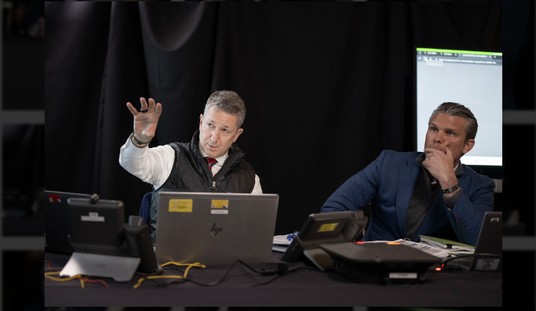Americans and consumers worldwide are growing more skeptical of big business, public schools, television news, and government overall. A “trust crisis” threatens public faith in tech companies like Facebook and Twitter, various branches of government like Congress and the presidency, and social institutions. David Miller, Ph.D., director of the Princeton University Faith & Work Initiative, spoke at the World Economic Forum in Davos earlier this month, presenting a solution to this crisis: wisdom from the Abrahamic faiths of Judaism, Christianity, and Islam.
According to Gallup, fewer and fewer Americans express “a great deal” or “quite a lot” of confidence in a growing number of institutions. While most Americans (73 percent) trust the military, only about half (53 percent) trust the police. Fewer trust the Supreme Court (38 percent), the presidency (38 percent), banks (30 percent), public schools (29 percent), big business (23 percent), television news (18 percent), and Congress (11 percent). As various movements like Black Lives Matter and #MeToo aim to expose various forms of corruption, they have weakened Americans’ trust in the institutions necessary for civil society.
On Monday, January 20, Miller presented his paper, “Towards a ‘Restoration of Trust’? Preliminary Insights and Lessons from Wisdom Traditions,” at Davos. His paper draws eleven lessons from Judaism, Christianity, and Islam, including demonstrating a commitment to trustworthiness, undergoing a process of conversion, caring for yourself and others, a covenantal mindset that goes beyond mere legal contractual requirements, the need for ritual, and the acknowledgment of institutional fallibility and the weight of sin from generations before.
“Remembering that our audience was international in nature and largely corporate executives, I think their first reaction was surprise,” Miller told PJ Media. He said his audience was “surprised that this sort of topic would be raised at the World Economic Forum in Davos. After folks got over their initial surprise and listened to the logic and goal of the paper, the reactions were full of curiosity and interest — and led to some fascinating conversations.”
PJ Media asked the professor whether the audience dismissed the idea of applying biblical wisdom or whether they embraced it.
“I presented our research findings drawing on religious traditions as complementary to other sources of wisdom. I made the point that wisdom and truth, whatever the source, should be embraced by thoughtful business leaders and organizations,” Miller explained. “That point seemed to land well with the audience.”
Even so, the paper delves into controversial religious subjects when it comes to paving the way for a restoration of trust.
Miller’s paper presents “the religious language of conversion” as potentially “fruitful” in this endeavor. “Conversion is a turning around, a change of direction, a radical becoming of something otherwise. Religious texts speak of this as receiving new hearts, new eyes—that is, a new organ of perception. They also speak of it in terms of becoming a new human, a new species, being born anew.”
The paper also compares an organization losing its central goal to idolatry.
“The dissonance between one’s stated or confessed ‘god’ and one’s lived ‘god’—that is, the ‘god’ one in practice serves by their actions—is described in the Abrahamic traditions as idolatry,” the paper explains. “God is a community’s highest principle, its organizing confession, its Ideal, its norming Norm. The concept of sin within these traditions manifests itself as a falling short, disregard, or ignorance of a community’s Ideal. Idolatry is something different. It is a replacement of the Ideal with its own imitation—a kind of parody, a lesser god.”
“This theological background is significant when it comes to restoring institutional trust precisely because it confronts the root of the stated desire to be a trustworthy company,” Miller explains. “Each institution must honestly confront the question: What is our ultimate concern as an institution? What is our chief Ideal? What is the organizing principle and norming Norm of our company? Answer this honestly and you have the ‘god’ of your confession. Now consider the ideals and values of your histories, policies, practices, structures of promotion and reward, etc., and, in so far as there is dissonance, you have your idols.”
“The wisdom of the Abrahamic religious traditions is in their explication of idolatry as self-harm. Double-mindedness is ‘bad for business’ precisely because it is poor self-care,” he explains.
PJ Media asked the Princeton professor whether these topics rubbed his audience the wrong way.
“Using the right language and picking the right words are crucial for a conversation like this to be heard and not rejected out of hand, particularly if the reader or audience is not faith-oriented,” Miller told PJ Media. “People said the language and tone we used in the white paper was inclusive and invited them into a conversation. I made the point that all people and all organizations, including the church, have moments of brokenness and have to earn back and rebuild trust. No one seemed to argue with or question that working assumption.”
As large corporations, news outlets, Congress, public schools, and other institutions attempt to address the trust crisis, they would do well to consider the Tanach, the Christian Bible, and the Quran. Wisdom from the Abrahamic faith traditions can help direct companies, nonprofits, and government not just to weather the storm of movements like #MeToo but to build a culture that honors employees, customers, and other partners.
Turning from the idols of efficiency to the “god” of a central purpose, acknowledging the pervasive potential of brokenness like the concept of Original Sin, turning away from corruption by following a process like conversion, thinking in terms of a covenant rather than a contract — each of these principles and more can help reinvigorate corporate culture, nonprofit governance, and the halls of Congress to better fulfill their potential in their spheres of influence.
Perhaps a little religion is just what America’s institutional culture really needs.
Tyler O’Neil is the author of Making Hate Pay: The Corruption of the Southern Poverty Law Center. Follow him on Twitter at @Tyler2ONeil.









